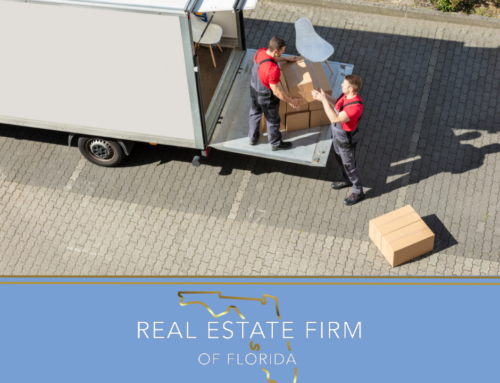The Stress-Free Guide to Moving
Moving can be one of the most stressful experiences in life, but it doesn’t have to be. With careful planning, organization, and the right mindset, you can make your move smooth and stress-free. This guide covers everything you need to know to prepare for a successful move.
Planning Your Move
The key to a stress-free move is thorough planning. Start by creating a moving checklist that outlines all the tasks you need to complete before, during, and after the move. This checklist should include setting a moving date, creating a budget, hiring movers or renting a truck, decluttering and organizing your belongings, gathering packing supplies, notifying relevant parties of your address change, transferring and setting up utilities, and preparing moving day essentials. Having a detailed plan will help you stay organized and ensure that nothing is overlooked.
Related: Tips for buying or selling a home in Tampa Bay
Creating a Budget
Moving can be expensive, so it’s important to create a budget to manage your expenses. Your budget should include moving company fees or truck rental costs, packing supplies such as boxes, tape, and bubble wrap, travel expenses including gas, food, and lodging if needed, utility setup fees, cleaning services for your old home, and any additional costs like temporary storage or pet boarding. Review your budget regularly and adjust as needed to avoid any financial surprises.
Hiring Movers vs. DIY Move
Deciding whether to hire professional movers or do it yourself depends on several factors, including your budget, the distance of the move, and how much stuff you have. Hiring professional movers can handle the heavy lifting and logistics, making your move easier and less physically demanding. When hiring movers, get multiple quotes to compare prices and services, check reviews and ratings to find reputable companies, confirm the details of your move including the date, time, and any special requirements, and understand the insurance coverage and what is included in the contract. A DIY move can save money but requires more effort and organization. If you choose to move yourself, rent a moving truck that fits your needs, enlist friends and family to help with loading and unloading, plan the route and schedule breaks if it’s a long-distance move, and ensure you have the necessary equipment such as dollies and furniture pads.
Decluttering and Organizing
Before you start packing, take the time to declutter and organize your belongings. This will make packing easier and reduce the amount of stuff you need to move. Sort through each room and decide what to keep, donate, sell, or discard. Organize a garage sale to sell items you no longer need to earn extra cash, donate to charity to give away usable items to those in need, and properly dispose of junk that cannot be sold or donated. Decluttering will make your new home feel more organized and less cluttered from the start.
Related: All about home appraisals
Packing Tips
Packing can be one of the most time-consuming aspects of moving. Use these tips to make the process more efficient. Start packing non-essential items several weeks before the move. Clearly label each box with its contents and the room it belongs to. Pack items from each room together to make unpacking easier. Invest in sturdy boxes, packing tape, bubble wrap, and packing paper to protect your belongings. Include items you’ll need immediately upon arrival, such as toiletries, a change of clothes, important documents, and basic kitchen supplies in an essentials box.
Address Change and Utilities
Don’t forget to notify important parties of your address change and arrange for utility transfers. Here’s a checklist of who to notify: submit a change of address form with the post office, schedule disconnection and reconnection of utilities such as electricity, gas, water, internet, and cable, update your address on all bank and credit card accounts, inform your home, auto, and health insurance providers, update your address with your employer and any retirement or benefits providers, change your address for any magazine or subscription services, and notify your loved ones of your new address.
Moving Day Essentials
On moving day, having a few essentials on hand can make the process smoother. Keep passports, IDs, and any moving-related paperwork with you. Ensure all necessary medications are easily accessible. Keep everyone hydrated and energized throughout the day with snacks and water. Be prepared for any minor injuries with a first aid kit. Have basic tools handy for assembling and disassembling furniture. Keep your phone charged for communication and directions.
Settling into Your New Home
Once you arrive at your new home, take the time to settle in comfortably. Focus on unpacking the kitchen, bathroom, and bedrooms first. Ensure your electricity, water, internet, and other services are functioning. Give your new home a thorough cleaning before unpacking. Familiarize yourself with local amenities such as grocery stores, schools, and healthcare facilities. Building a rapport with your neighbors can help you feel more at home.
FAQ About Moving
Check out these commonly asked questions about moving. If you don’t see your question here, please call our office and we’ll find you the answers you need.
How Far in Advance Should I Start Planning My Move?
Start planning your move at least two to three months in advance. This gives you ample time to organize, declutter, pack, and handle logistics without feeling rushed.
What Is the Best Time of Year to Move?
The best time to move depends on your personal circumstances. However, spring and summer are popular moving seasons due to favorable weather and school schedules. Winter moves may offer lower moving costs but come with potential weather-related challenges.
How Can I Save Money on My Move?
To save money, consider a DIY move, declutter to reduce the volume of items, compare quotes from multiple movers, and move during off-peak times. Additionally, use free or low-cost packing materials when possible.
Related: How to stage your home for a super-quick sale
What Should I Do If My Moving Date Changes?
If your moving date changes, notify your movers, utility companies, and anyone else involved in the move as soon as possible. Adjust your moving plan and schedule accordingly to accommodate the new date.
How Can I Make Unpacking Easier?
To make unpacking easier, label boxes clearly, unpack one room at a time, and prioritize essential items. Having a plan and staying organized will help you settle into your new home more efficiently.
Moving doesn’t have to be stressful. By following these steps and tips, you can ensure a smooth and hassle-free transition to your new home. Planning ahead, staying organized, and enlisting the right help will make all the difference in your moving experience.
No properties found
Are You Buying or Selling a Home in Tampa Bay?
You can use this website to search homes for sale in Tampa Bay and all its communities. Our site is directly connected to the Tampa Bay MLS, and we update our listings every hour. You can even use our site to create your own account and get emails as soon as a new home hits the market, price change alerts and so much more.
While you’re here, check out these listings:
Join our team
Please fill out the below form completely and include your resume & cover letter and we will get back to you quickly!
Today’s Newest Homes for Sale in Tampa Bay
Check out the newest homes listed in the last hour in Greater Tampa Bay.
Are You Buying or Selling a Home in Tampa Bay?
You can use this website to search homes for sale in Tampa Bay and all its communities. Our site is directly connected to the Tampa Bay MLS, and we update our listings every hour. You can even use our site to create your own account and get emails as soon as a new home hits the market, price change alerts and so much more.
While you’re here, check out these listings:














